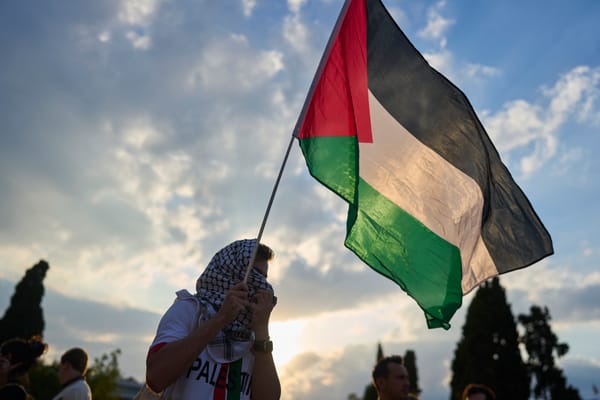While the Gaza Strip lies in rubble, the cause of Palestinian freedom seems on the verge of a global breakthrough. Three leading Western states—Canada, France and the United Kingdom—have all said that they will recognize Palestine as an independent state, as have 143 of the 193 UN member-states. This marks a significant departure for Western states’ regional policy, and a break with US leadership over the Arab-Israeli peace process. So how do we reconcile the devastation inflicted on the people of Gaza with the diplomatic forward strides made by Palestine in international affairs?
On the face of it, winning international recognition would seem to be a victory for Palestinian diplomacy—a strategic success won despite battlefield defeat at the hands of Israel. Many have criticized the Canadian, French, and British on these same grounds, arguing that recognition is effectively rewarding Hamas, granting them what they wanted despite the fact that they started the most recent war with their bloody incursion into Israel in October 2023.
Yet if terrorism renders subsequent recognition of statehood impossible, we would have to withdraw recognition from a host of formerly colonized states, including Algeria, Ireland, Kenya, Vietnam, Indonesia, and Israel itself. Israel won its independence from Britain in part through a classic mid-20th century anti-colonial campaign that involved guerrilla insurgency and significant acts of terrorism. This included the May 1946 bombing of the British headquarters at the time, the King David Hotel in Jerusalem, which killed 96 people, as well as the assassination of Swedish diplomat, Count Folke Bernadotte.
In such cases, diplomatic recognition often comes as a post hoc acknowledgement of political reality—a recognition of territorial control wrested from occupying powers, of institutional separation through the development of insurgents’ independent political and legal authorities, and the corresponding loss of legitimacy of the ruling authorities.
In cases of anti-colonial uprising, the question is not the nature of the violence as much as whether or not an insurgency succeeds in effecting these political changes. To put it another way, the question is not what amount of violence is legitimate in the winning of national freedom, but rather what is it that is being recognized?
“There is no independent Palestine to recognize.”
Here there is no avoiding the brute fact that there is no independent Palestine to recognize. Its territory is divided across the Gaza Strip and West Bank, with Israel wedged in between. Gaza has been reduced to ruins and its population depleted, uprooted, and displaced, while the West Bank is honeycombed with Israeli settlements and infrastructure defended by Israeli arms. Insofar as there is any Palestinian authority left in Gaza, it is the remnants of Hamas cowering in underground tunnels beneath the apocalyptic ruination above. Having destroyed Hamas as a military force, the Israeli government is now contemplating reoccupying the Gaza Strip in its entirety.
To extend diplomatic recognition to Palestine in such circumstances is worse than a mistake; it is to trade in illusions, to offer Palestinians the mirage of statehood. Palestinian delegates will get to participate in international fora, attend international conferences, exchange diplomatic pleasantries, and enjoy the hospitality at international conferences. It will do nothing for ordinary Palestinians. It will not prevent the Israeli occupation of Gaza nor end the construction of Israeli settlements in the West Bank. It will not result in independent institutions of self-government, nor will it enhance state capacity in the occupied territories. Nor will it provide relief or restore functioning public services.
What is worse, this mirage of statehood will encourage Palestinians to evade the reality of their military and strategic defeat at the hands of Israel. Middle class protestors on Western campuses can afford to indulge in political moralism; such idealism is suicidal for the cause of Palestinian independence. Western states have their own, mostly cynical reasons to extend recognition to Palestine in order to placate vocal Muslim minorities and undercut the radical left. Whatever violence may or may not be legitimate in establishing national independence, we can be sure that violence that establishes fictional states—states whose only existence is on the NGO conference circuit—is not only morally reprehensible but also politically futile.
